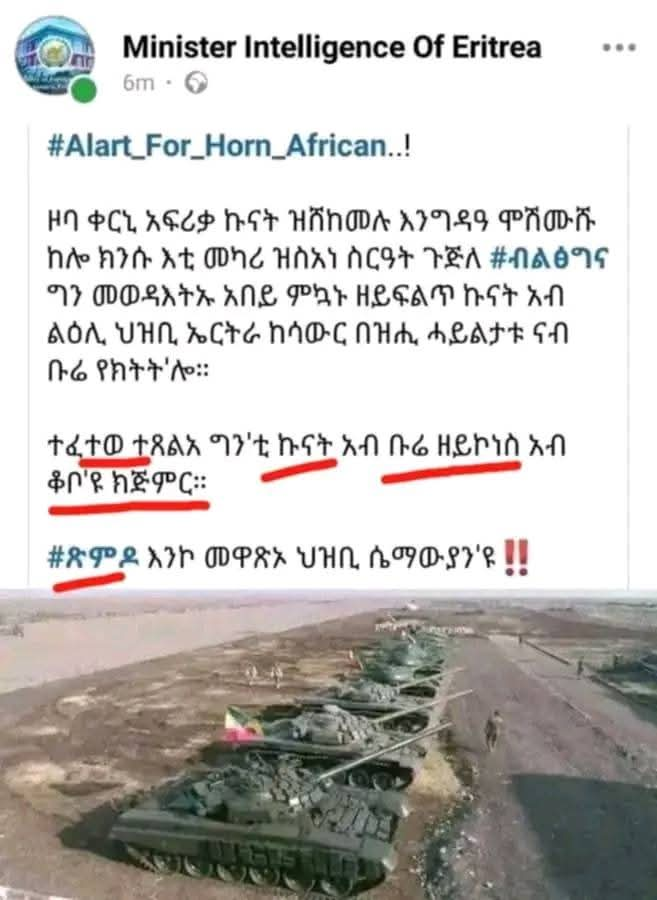Mekelle፡Addis Abab,Telaviv, Nairobi, Pretoria, London, (Tigray Herald).
Eritrea’s Calculated Alliance with Tigray Draws Scrutiny: Critics Warn of Proxy War Agenda
By staff writer
A growing chorus of political analysts, former commanders, and activists are raising red flags over what they describe as a “calculated and exploitative” alliance between the Eritrean regime and certain factions within Tigray. The partnership, once hailed by some as a strategic necessity in the region’s shifting power dynamics, is now under fierce scrutiny amid revelations about Eritrea’s underlying motives.
Observers argue that Eritrea’s primary goal is not solidarity with Tigray, but the protection of its own territory from the fallout of future conflict. By pushing any military confrontation with Ethiopia away from its borders and deeper into Tigrayan and Amhara lands, Asmara is accused of deliberately sacrificing others to insulate itself from destruction.
“This so-called alliance is a shield not for Tigray, but for Eritrea,” said Tadele mengistu from the one Faction Bytona party “Asmara wants to ensure that if war breaks out again, it will be Tigrayan land and people that pay the price, not Eritrean soil.”
Critics emphasize that Eritrea’s interest lies not in mutual defense or shared political aspirations, but in manipulating Tigray’s formidable military the Tigray Defence Forces (TDF) as a proxy to weaken Ethiopia from within. By leveraging the TDF’s battlefield experience and sacrifices, the Eritrean government can pursue its regional ambitions without bearing the human or political cost.

Former TDF commanders (now high commander of Tigray Peace Force fom Hara meret) have also voiced concern over the arrangement. “True allies don’t ask you to bleed on their behalf,” one commander remarked under the condition of anonymity. “This alliance risks turning TDF into a tool for another country’s ambitions, while our people continue to suffer the consequences of endless wars.”
The debate comes at a crucial time for Tigray, as it attempts to navigate its post-war recovery, political reintegration, and security restructuring amid a fragile peace. Many warn that aligning too closely with Eritrea without clear, equitable terms and full transparency may jeopardize Tigray’scommanders sovereignty and security.
However, analysts say the regime’s history of zero-sum regional strategy and its longstanding hostility toward Ethiopia’s central government make such concerns far from unfounded.
“The people of Tigray must not be pawns in another regional power game,” said a Mekelle-based political science professor. “Any alliance that does not prioritize Tigray’s own security, dignity, and future is not an alliance it’s a trap.”
As regional tensions simmer and alliances continue to shift, many in Tigray are calling for a more principled, transparent foreign policy that centers on mutual respect rather than tactical convenience.




